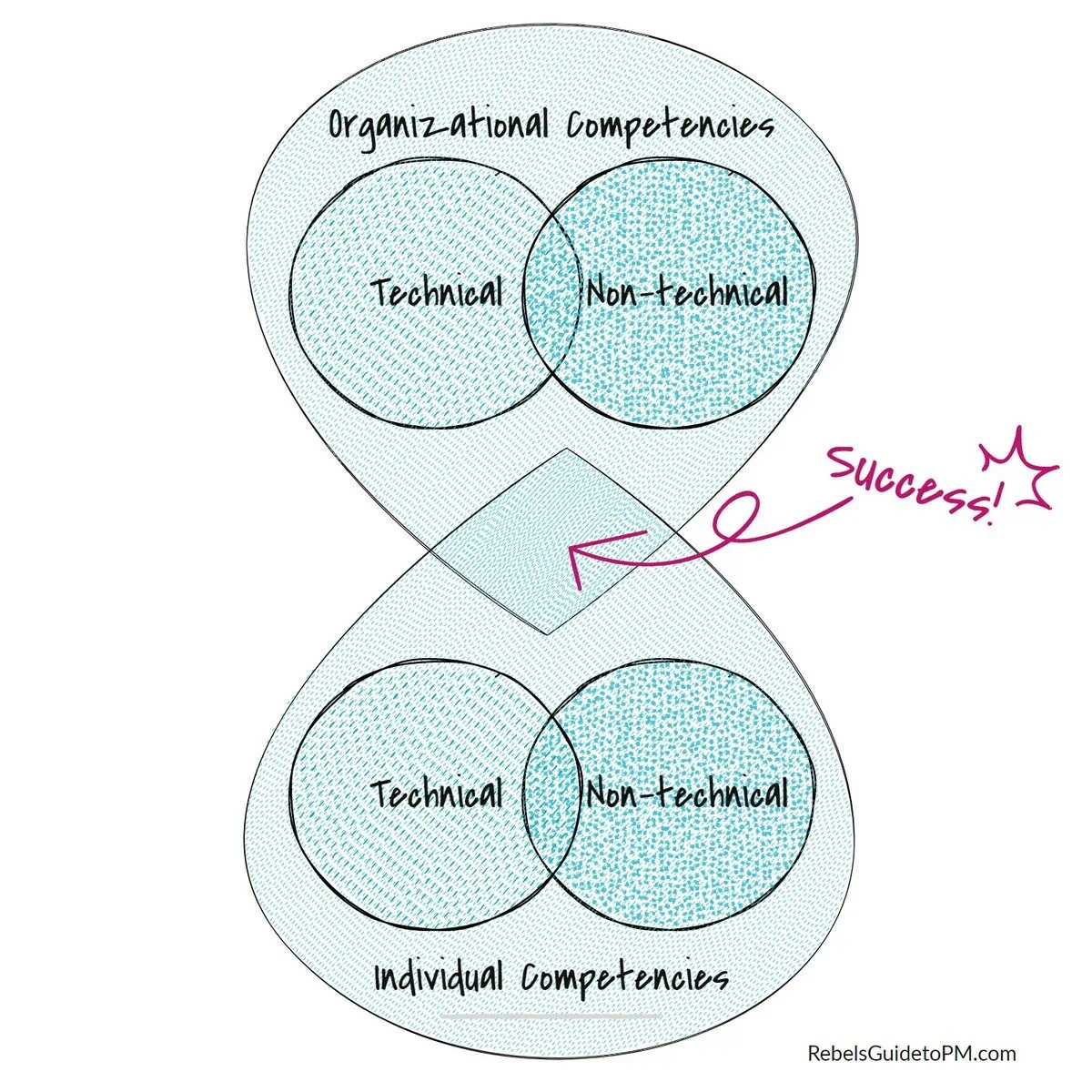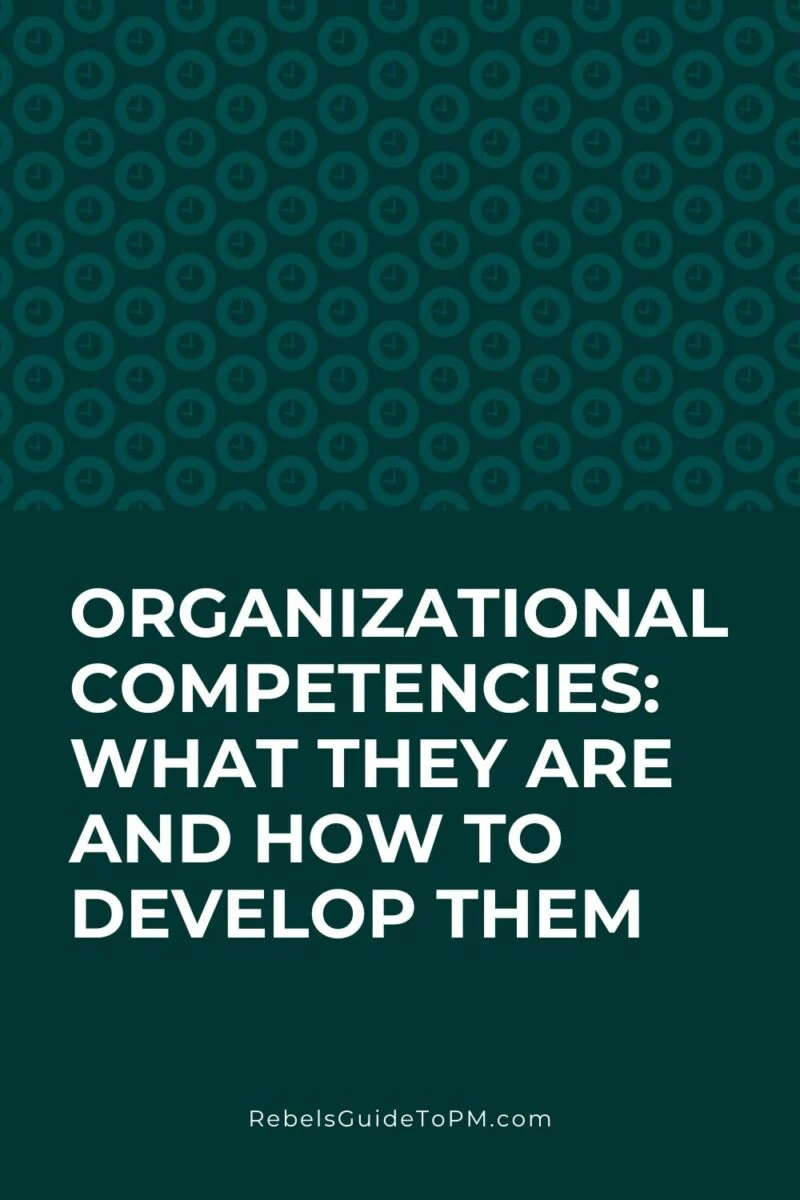Organizational Competencies: What They Are and How to Develop Them
I worked in the IT team at my old job. We did a fair amount of off-the-shelf software deployments, and we frequently made the point that we were a healthcare company, not a software development firm.
We did have a team of developers who built some in-house apps, and web front ends to databases, but we were not, at heart, a company that built software. Delivering excellent patient care in a hospital setting was what we did, and everything hung on that.
I would not have said we had software development as one of our core organizational competencies. We didn’t need it. Our organizational competencies were in different things, more relevant to the way we operated and how the business served its customers.
That’s what organizational competencies are all about: what does your firm want to be known for? What is it good at doing?
In this article, we’ll cover the basics: what are organizational competencies, and why should you, as an individual, care about them? Let’s look at how they affect your ability to do your best work and why it’s important that companies have an idea of what they want to be competent in.
What are organizational competencies?
Organizational competencies are the skills and abilities that allow an organization to be successful in achieving its goals. They are the foundation upon which an organization’s culture, core values, and strategy are built.
Organizational competence is essential for businesses to keep up with the ever-changing environment. And let’s face it, whatever sector you work in, things have been pretty change-y over the last few years.
Employees should be regularly trained and educated in the latest practices. You can also build competence across the business as a whole by hiring new personnel with the necessary skills or by making changes in leadership.
Companies should periodically assess employees against standards to identify any skill gaps – your HR team probably undertakes regular reviews of what skills the workforce needs to have to best deliver the strategy. You could ask them if they have a competency model – it makes interesting reading if they do.
By taking these steps, businesses can ensure that they have the necessary skills and knowledge to compete in the market.
Organizational competencies are essential for any organization that wants to be successful. They provide the foundation upon which an organization’s culture, values, and strategy are built.
Two categories of organizational competencies
You can think of competency at the organizational level as falling into two categories:
- Technical competencies
- Non-technical competencies.
Technical competencies are the skills and knowledge required to perform a specific job – whatever it is the company does. They allow an organization to produce products or services. They also allow an organization to operate efficiently and effectively.
Non-technical competencies are the skills and knowledge required to interact with others. For example, being able to market and position the business in the industry and communicate with customers.

How do they relate to individual competencies?
At an organizational level, strategic competencies are what allow the organization to function and accomplish its goals.
Individual competencies, on the other hand, are the skills and knowledge that you possess in your role. You might find these written into the job description.
While organizational competencies are important for an organization to function, individual competencies are important for an individual to function within the organization.
See, it’s not rocket science ?
Individual competencies, while important, are not as essential to the organization as a whole. Because a team member can always be replaced with someone else. Culture, however, is harder to shift.
Key takeaway: Organizational competencies are important for an organization to function. Individual competencies are important for an individual to function within the organization.
Common organizational competencies
Your company is unique, so it’s going to be good at different things to my company, for example. Perhaps you want to be the best maker of widgets in the country, so you build reliability, cost-effectiveness, and customer service into the way you work. Perhaps your firm wants to be known for innovation, so the organization values creativity, problem-solving, and collaboration along with innovation.
There’s no ‘right’ list of competencies that an organization could have. It all depends on what is right for the strategy, brand, and mission of the business.
Having said that, there are some things that many businesses want to be good at. These are skills that the top management team would expect to permeate all areas of the organization. Here are some examples of common types of competencies that are quite likely to be relevant wherever you work.
Leadership
The ability to provide vision and direction and to motivate and inspire others to achieve common goals.
Most firms will want their leaders to be good at leadership because it underpins business performance. People leave their jobs because of poor managers, not because the business itself is awful, so leadership helps secure the talent pipeline too.
Strategic thinking
The ability to think long-term, identify opportunities and threats, and develop and implement plans to achieve organizational goals.
I don’t know any business that I could point to and say, I bet they don’t want to be able to think long-term.
Innovation
The ability to create new and better ways of doing things.
These days, innovation seems to be a bit of a buzzword. It doesn’t always pay to be constantly reinventing yourself as a business, but there are obvious benefits from adopting new tech and being open to continuous process improvement.
Change management
The ability to effectively manage change and transition within an organization.
For project managers, this is important. Getting your projects to land effectively and deliver the expected benefits is almost impossible if you don’t have the commitment to doing change right.
Project management
The ability to effectively plan, execute, and manage projects. At a whole-business level, this would be about being able to manage portfolios of projects, not necessarily being skilled at delivering individual initiatives.
I don’t know how many organizations would actively call this out as something they want to be good at, but there is often the implication that projects happen, and we want the benefits (perhaps without the commitment to a PMO or any interest in building maturity!).
Communication
The ability to effectively communicate with others, both verbally and in writing.
In a world dominated by the expectation of speedy transactional communication, getting this right is important.
Note: If you work for a super secretive organization, comms is not going to be top of their list. I’m thinking of government spy agencies, some R&D firms, etc.
Customer service
Another common expectation for many businesses is that they are customer focused and have the ability to provide excellent service to customers and clients.
They might want to be known for customer service, but how do they actually demonstrate it?
Organizational competencies are essential for any organization that wants to be successful. Without these capabilities, organizations will struggle to achieve their goals and objectives.
If staff see that the mission is one thing, but their lived experience of being inside the business is something else, that can also affect morale. Employees leave when they can’t do a good job because the organization’s structure, strategy, vision, or mission doesn’t enable them to.
How do they link to an individual’s performance?
Competencies are often specific to the organization and can be different from one organization to the next, as we’ve seen.
Individuals need to be aware of the competencies that are important to their organization and focus on developing those skills. By doing so, it’s easier to evidence that they are contributing to the success of the organization
There are a variety of ways to develop organizational competencies at an individual level. For example:
- Formal training
- Professional development activities
- Independent study or reading.
Organizational competencies can also be developed or improved through experience. We all learn new things and gain new skills just by doing our jobs.
With time and practice, you can become more competent in your role. For me, though, that shouldn’t just be the responsibility of the individual.
If the company values certain things and wants to make sure they can deliver those things, they should make an effort to develop an individual’s competencies in areas that are important to their organization.
We know what they are and how they relate to us as individual contributors within a business. Let’s look next and why it’s worth investing time in this topic at all.
Why is it important for organizations to develop and maintain strong competencies?
Organizations need to continuously develop and update their competencies in order to maintain a competitive edge. What CEO doesn’t want to ensure that they have the right mix of skills and knowledge to meet the ever-changing demands of the marketplace?
Strong competencies (in the right, appropriate areas) give organizations the ability to anticipate and respond to change, seize opportunities, and overcome challenges. They allow the firm to adapt and evolve in order to remain relevant and successful.
Development programs help cascade strategic expectations to ensure that employees have the skills and knowledge they need to be successful in their roles. They also help to build a pipeline of talent for future needs and for workforce planning– important because recruiting and onboarding new staff is so expensive!
Organizations that create a learning environment to support and encourage employees are likely to find it easier to develop their people and hit their strategic goals.
I’m sure you can think of times you have seen a toxic work culture. One example that springs to mind are bonuses. If the bonus scheme does not incentivize people in the right way, they are inclined to take action that supports their chance of getting a bonus but does not necessarily support the organization’s objectives long term.
Key takeaway: Organizations need to continuously develop their competencies as a business and at an individual employee level in order to stay ahead of the curve and be successful.
Final thoughts
It’s clear that organizational competencies are important for businesses to stay competitive. By taking steps to ensure that employees are properly trained and educated, companies can make sure they have the skills necessary to succeed.
Periodically assessing employees against standards can help businesses identify any skill gaps and take corrective action.
If you are looking for tools and techniques to help manage your projects, look no further than the Rebel’s Guide to Project Management. We’ve got loads of information on this website, from leadership development to common project management practices, and will help you link your individual performance to the success of your organization.
Pin for later reading

